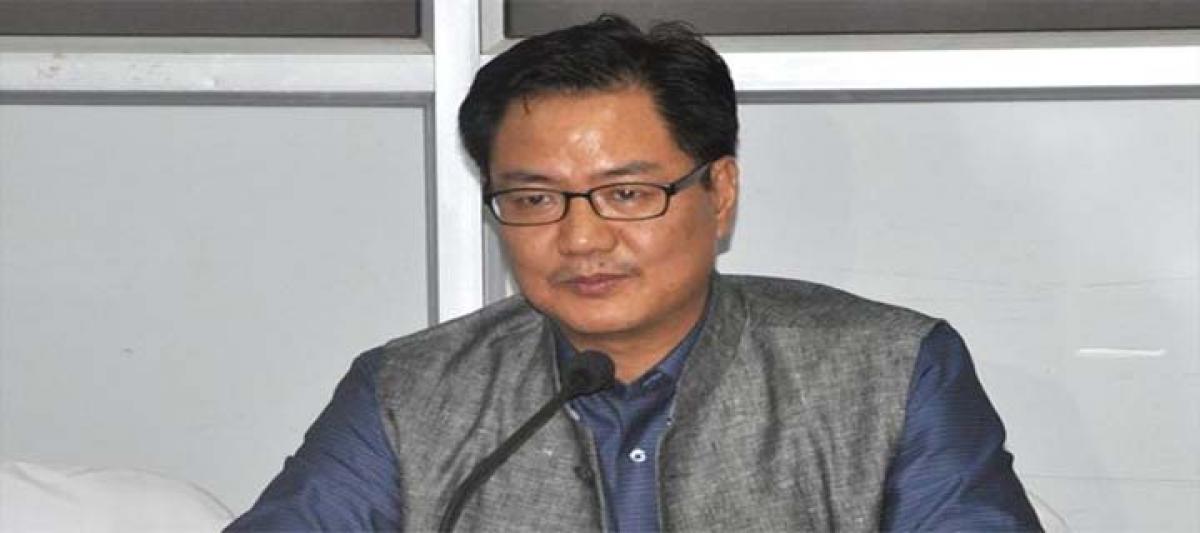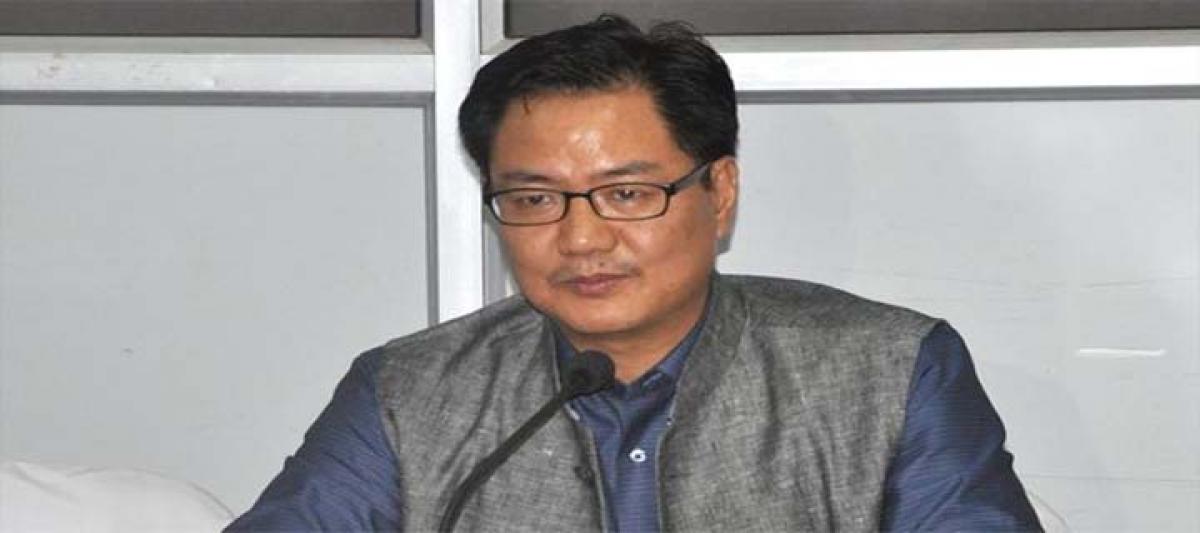Live
- Jharkhand Guv announces 33 pc govt job quota for women in Assembly
- iPhone SE 4 to Feature 48MP Camera: All You Need to Know Ahead of 2025 Launch
- K Pawan Kalyan Deputy Chief Minister’s speech at Collectors Conference
- Indian scientists develop 1st human gene therapy for Haemophilia A
- NBA Cup: OKC defense is no. 1 for a reason, says Luka Doncic after QF loss
- Jeff Thomson urges officials to let BGT ‘breathe’ amid spirit of cricket debate
- Interstate Burglar Arrested in Karimnagar: Stolen Gold, Silver, and Electronics Recovered
- BGT 2024-25: Gabba curator predicts 'fresher' pitch for Brisbane Test
- India’s tea exports clock double digit growth during April-September
- Three drug peddlers arrested in J&K’s Baramulla
Just In

x
Highlights
Ahead of the Assam assembly elections next year, the Centre may sign a peace accord with pro-talk faction of the ULFA to bring an end to the nearly four decades of insurgency in the northeastern state.
Ahead of the Assam assembly elections next year, the Centre may sign a peace accord with pro-talk faction of the ULFA to bring an end to the nearly four decades of insurgency in the northeastern state.

Hectic parleys have been going on between central government's interlocutor P C Halder and the ULFA faction led by its 'chairman' Arabinda Rajkhowa almost every week for an amicable solution to the group's demands after it threatened to walk out of the talks if no solution comes by November-end.
The peace accord may not be ready by November-end but Home Ministry is making efforts to finalise it well before the next year's assembly elections. "Efforts are on to achieve a breakthrough soon," Union Minister of State for Home Kiren Rijiju said.
Elections to the 126-member Assam assembly are due in April-May next year. The BJP may try to take credit if an accord is signed before the polls in its bid to dislodge the Congress, which is ruling the state for three consecutive terms.
"We want an early solution to the ULFA issue," Sports Minister Sarbananda Sonowal, the lone representative from Assam in the Modi council of ministers, said.
Prime Minister Narendra Modi, who oversaw the peace accord signed with Naga insurgent group NSCN-IM in August, is believed to be in favour of early conclusion of the peace agreement with ULFA.
If a peace accord is signed in next two-three months, some of the ULFA leaders are expected to contest the assembly elections. A former ULFA leader, Hira Sarania, is now an MP (Independent) in Lok Sabha after he successfully contested the 2014 Parliamentary elections.
The Rajkhowa-led ULFA faction had begun unconditional talks with the Central government in 2011, despite strong opposition from the hardline wing led by Paresh Baruah, who is believed to be in Myanmar.
Among other issues, ULFA's charter of demands include recognition of six communities in Assam -- Moran, Muttock, Tai Ahom, Koch Rajbongshi, Sootea and Tea Tribes -- as Scheduled Tribes (ST).
"All these communities are now OBCs and as such there is no opposition from any quarter to their inclusion in the ST list. But the government will have to take approval of the Parliament through a Constitution amendment bill," a Home Ministry official said.
The Home Ministry has supported the proposal of inclusion of the six communities in the ST list and is in talks with the National Commission of Scheduled Tribes and the Tribal Affairs Ministry to draft and finalise a Bill, which may be tabled in Parliament in the upcoming Winter session, if the related issues get resolved.
The grant of tribal status to these six communities will lead to 50 per cent population of Assam becoming tribal or Assam turning into a tribal-dominated state.
It will also facilitate fresh delimitation of assembly constituencies and significant increase in the number of ST seats in the 126-member Assam assembly. Assam currently has 16 ST seats.
The fear of indigenous communities, that the illegal immigrants from Bangladesh would soon usurp the political power, would diminish if 50 per cent Assembly seats are reserved for ST when Assam becomes a tribal-dominated state.
The United Liberation Front of Asom (ULFA) was formed in 1979 with the demand for a 'sovereign' Assam. Since then, the group has been involved in subversive activities that led to the Central government banning it in 1990.
The Rajkhowa faction joined peace talks with the government on September 3, 2011 after an agreement for Suspension of Operations was signed between the ULFA, central and state governments.

Next Story
More Stories
ADVERTISEMENT
© 2024 Hyderabad Media House Limited/The Hans India. All rights reserved. Powered by hocalwire.com







